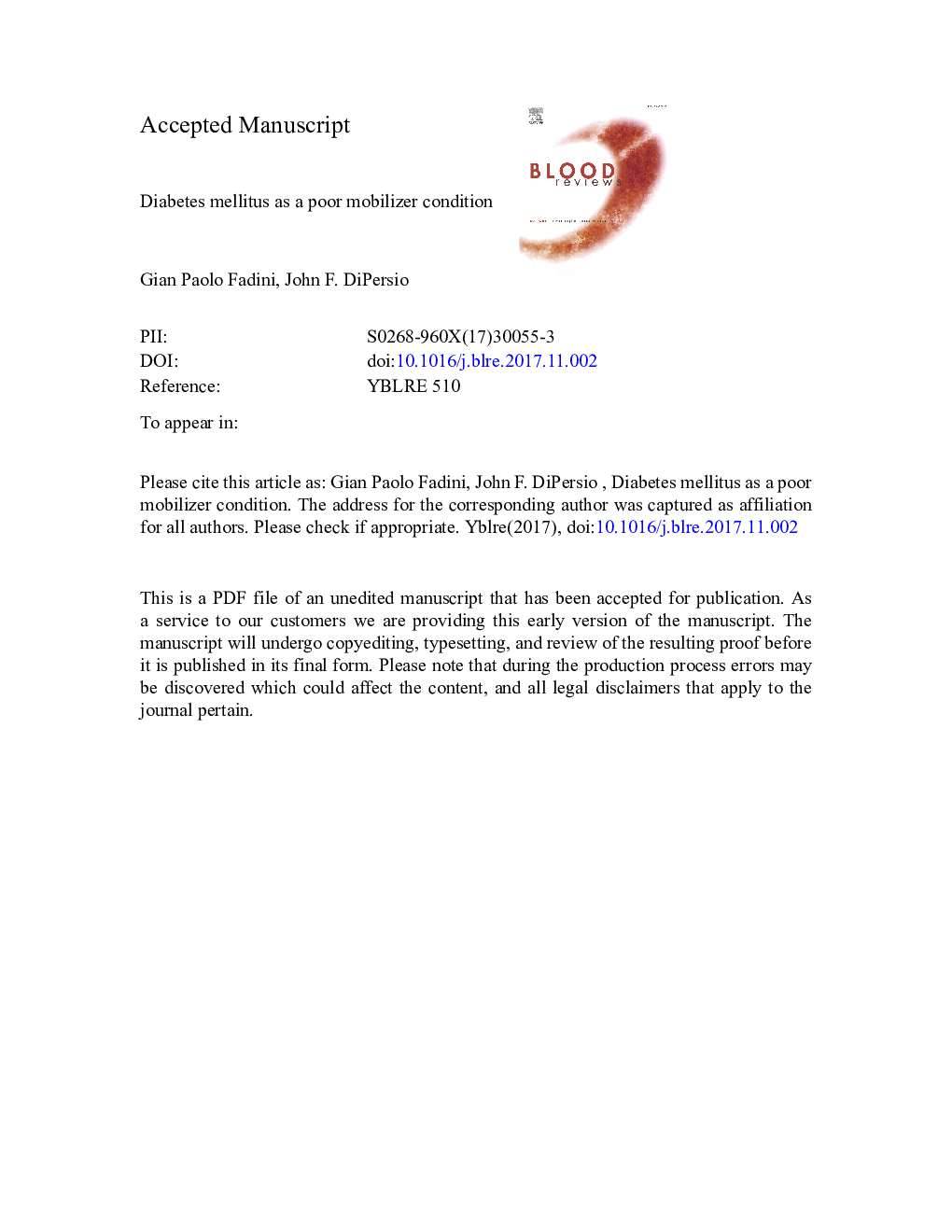| Article ID | Journal | Published Year | Pages | File Type |
|---|---|---|---|---|
| 8431970 | Blood Reviews | 2018 | 34 Pages |
Abstract
Hematopoietic stem cell (HSC) transplantation in an effective and curative therapy for numerous hematological malignancies. Mobilization of HSCs from bone marrow (BM) to peripheral blood (PB) followed by apheresis is the gold standard for obtaining HSCs for both autologous and allogeneic stem cell transplantation. After administration of granulocyte-colony stimulating factor (G-CSF), up to 30% of patients fail to mobilize “optimal” numbers of HSCs required for engraftment. This review summarizes the current experimental and clinical evidence that diabetes mellitus is a risk factor for poor mobilization. Diabetes causes a profound remodeling of the HSC niche, resulting in impaired release of HSCs. Experimental studies indicate that hyperglycemia hampers regulation of CXCL12 and clinical studies suggest that diabetes impairs HSC mobilization especially in response to G-CSF, but less to plerixafor. Understanding further the biochemical alterations in the diabetic BM will provide insights into future therapeutic strategies to reverse the so-called “diabetic stem cell mobilopathy”.
Related Topics
Life Sciences
Biochemistry, Genetics and Molecular Biology
Cancer Research
Authors
Gian Paolo Fadini, John F. DiPersio,
